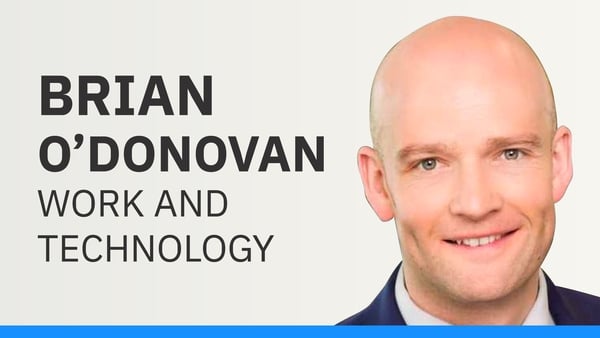Wage growth is expected to ease in 2023 following significant increases that have become unsustainable, according to a new study.
The Morgan McKinley 2023 Irish Salary Guide predicts that employers will be more cautious around salary increases in Ireland this year, with pay rises likely to be in the region of up to 5% across a range of sectors.
The report forecasts that there will be exceptions for niche and in-demand positions in areas such as technology, financial services and pharma where salary increases of between 10-15% could be in prospect.
According to the study, more than half of employers think they will lose staff in the first half of 2023 due to higher earning potential elsewhere.
Half of employees meanwhile plan on looking for a new job in the first half of the year and more than half think they will receive a salary increase this year.
"Wages have rocketed in recent years by margins that appear unsustainable," said Trayc Keevans, Global FDI Director, Morgan McKinley Ireland.
"In order to maintain profitability in a highly inflationary environment, businesses need to keep their costs down and a key way of doing this is by limiting salary increases," Ms Keevans said.
The study shows that most employers had to increase salaries in 2022 due to cost-of-living pressures and the competition for talent in the current tight labour market.
Morgan McKinley is predicting that the cost-of-living crisis will increasingly impact employee turnover as people will look for higher-paying jobs to try and offset the higher costs they are faced with.
"We have yet to see the impact the cohort of talent in the technology sector who became displaced towards the end of 2022 and beginning of 2023 will have on salaries," Ms Keevans said.
"Early indications suggest that this talent is confident of securing their next job, but it is too early to foresee whether this trend will be for equal or lesser levels of total compensation than they have enjoyed in big technology employers," she added.
Flexibility and remote working remain a priority for many employees with only 8% of professionals surveyed stating that a five day week in the office would be their preferred working pattern.
Responding to the report's findings that wage growth is set to ease, President of the Irish Congress of Trade Unions Kevin Callinan said that wage increases had not led to diminutions in company profits.
He also warned that many workers are continuing to struggle with the high cost-of-living.
"As the value of Government supports, such as the energy credit, are withdrawn this will have to be reflected in wage bargaining in both the public and private sectors," Mr Callinan said.






